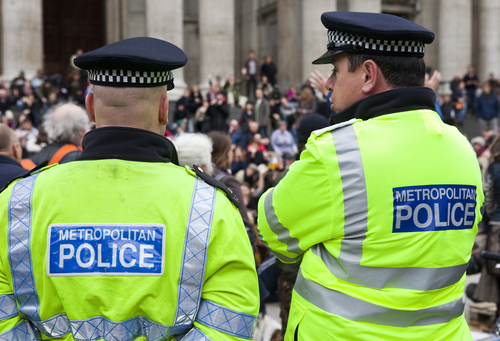Met Police Selects Microsoft Azure For Data Storage Of Video Evidence From Wearable Cameras

UK data centre means police data is kept securely in British borders
London’s Metropolitan Police force has selected Microsoft’s UK data centre as the depository for the video data recorded by the body worn cameras used by its officers.
The system dubbed Evidence.com is part of the world’s second largest rollout of Body-Worn Video (BWV) systems for frontline police officers, and as such has a wealth of data that needs to be securely stored for use in court cases and reviewing evidence.
The system is provided through a Microsoft partner Axon and will make use of the Redmond company’s Azure cloud platform linked to its UK data centre to support the data storage part of the BMV system.
Microsoft and the Met
![]() Due to data residency issues when handling sensitive information such as that required for police evidence purposes, Microsoft’s UK data centre was selected due to its location on mainland Britain and the fact that despite the Azure cloud being used as the storage system, the video data from the BWV system will not leave the physical or virtual borders of Britain.
Due to data residency issues when handling sensitive information such as that required for police evidence purposes, Microsoft’s UK data centre was selected due to its location on mainland Britain and the fact that despite the Azure cloud being used as the storage system, the video data from the BWV system will not leave the physical or virtual borders of Britain.
“The Met has selected Microsoft Azure as we believe their UK data residency and transparency around secure data management offers both the public and the Police Service reassurance that this technology is being used effectively to support the prosecution of offenders, the safeguarding of private information and build confidence in policing,” said Superintendent Adrian Hutchinson at the Met.
Data from around 22,000 police men and women wearing the BWV system across 32 London boroughs will be automatically sucked up by Microsoft’s Azure cloud so that any criminal acts caught on camera is saved and stored safely for later use in aiding prosecutions and ensuring justice is carried out correctly.
The BWV system has met the approval of key members of the Met including its commissioner Sir Bernard Hogan-Howe.
“Our experience of using cameras already shows that people are more likely to plead guilty when they know we have captured the incident on a camera. That then speeds up justice, puts offenders behind bars more quickly and, most importantly, protects potential victims,” he said.
“Video captures events in a way that can’t be represented on paper in the same detail, a picture paints a thousand words, and it has been shown the mere presence of this type of video can often defuse potentially violent situations without the need for force to be used.”
With that in mind it is likely the rollout of the BWV system will find its way into other police forces across the UK, meaning Microsoft’s UK data centre is likely to be kept fed with a wealth of police video data.
However, the police forces will have choice of other data centres should they wish to not be reliant on Azure, with Amazon Web Services noting the UK’s Brexit will not stop them building data centres in Britain, and IBM having touted plans to build four new UK data centres.
How much do you know about the cloud? Try our quiz!